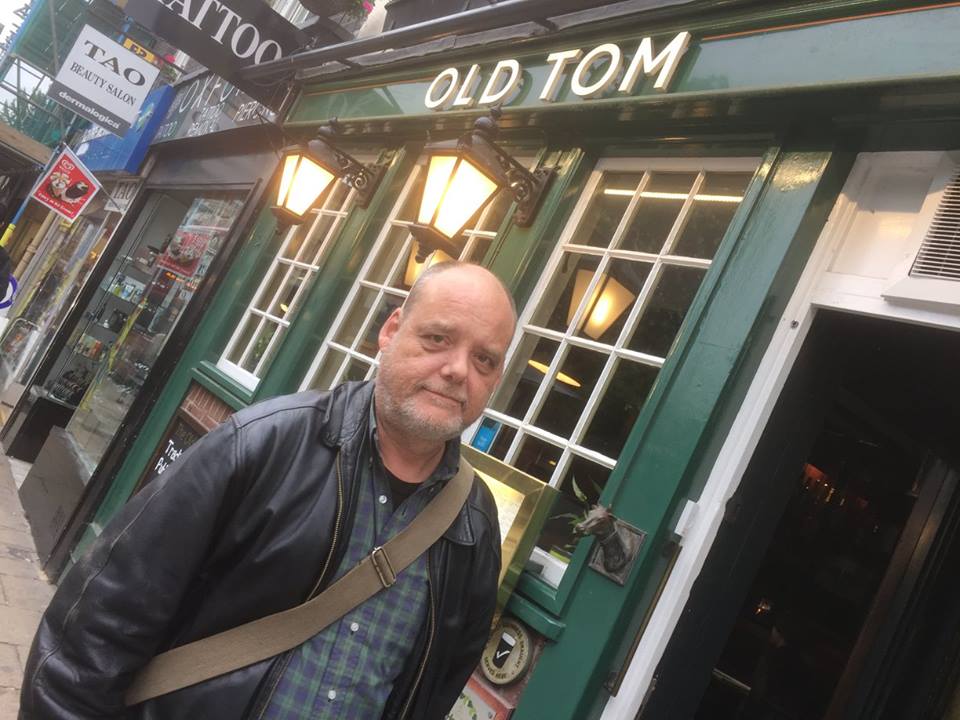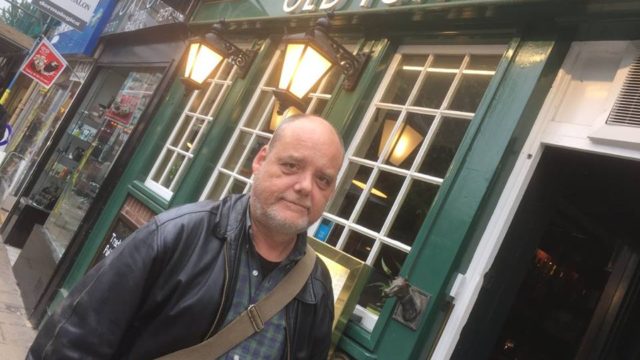By Tom Robotham
When I was in Oxford, England last summer, I stumbled upon a pub named “Old Tom.” How could I resist?
Inside it was as pleasant as any pub could be: small but not cramped; a well-crafted but unpretentious bar; a few tables, and a few smiling people. When I sidled up to the bar myself, one patron, a man about my age, was awaiting an ale.
“Hi,” I said. “How are you?”
To my surprise, he glared at me—then, without saying a word, he stuck out his tongue in the manner of a petulant 5-year-old. I shrugged it off, assuming he was either three sheets to the wind or mentally deranged. But when I recalled that moment recently it occurred to me that it was the perfect symbol for 2016.
It was a year of contemptuous expression from across the political spectrum: Clinton’s supporters sneered at “Bernie Bots”; the Sanders camp derided Clinton supporters—and Trump, needless to say, was contemptuous of everyone. But Trump, in particular, wasn’t merely contemptuous. His demeanor throughout the year was also childish. Indeed, his lack of maturity was so glaring that it would have surprised no one if he’d responded to a debate moderator or political opponent with a raspberry.
Nor did the childishness stop there. It was on pathetic display during countless panel “discussions” on CNN, populated by pundits who apparently never learned one of the basic rules of kindergarten: wait your turn. Instead, they constantly talked over one another, as the moderators sat there like exasperated parents of ill-behaved children amped up on soda and birthday cake.
What accounts for this childishness in so much of our culture?
The answer, I believe, is to be found in the book Amusing Ourselves to Death, by Neil Postman. It is required reading in one of my classes at Old Dominion University, and I strongly recommend it to anyone seeking to understand the decadence of contemporary American culture. Indeed, while it was first published more than 30 years ago, it remains even more relevant today than it was when it was written.
Postman begins his book by considering the fear that the American Dream might turn into an Orwellian nightmare—especially as the actual year 1984 approached. (The book was published in 1985.) As it turned out, he argued, we were focused on the wrong prophecy. Far more pertinent, he wrote, is Aldous Huxley’s Brave New World.
“Orwell,” Postman recalled, “warns that we will be overcome by an externally imposed oppression. But in Huxley’s vision, no Big Brother is required to deprive people of their autonomy, maturity and history. As he saw it, people will come to love their oppression, to adore the technologies that undo their capacities to think.
“What Orwell feared were those who would ban books. What Huxley feared was that there would be no reason to ban a book, for there would be no on who wanted to read one. Orwell feared those who would deprive us of information. Huxley feared those who would give us so much that we would be reduced to passivity and egoism. Orwell feared that the truth would be concealed from us. Huxley feared the truth would be drowned in a sea of irrelevance. Orwell feared we would become a captive culture. Huxley feared we would become a trivial culture, preoccupied with some equivalent of the feelies.”
Postman concluded his preface with this observation: Civil libertarians, ever on the lookout for signs of impending tyranny, “failed to take into account man’s almost infinite appetite for distractions.”
Over the next 175 pages or so, Postman considers how the trivialization of American culture has manifested itself in all of our institutions, including religion, the press, education and, most of all, politics.
Underlying all of this, Postman argues, is the triumph of the medium of television—the very nature of which is fundamentally unsuited to serious discourse.
I know—at this point you may be thinking that television is no longer relevant, what with the rise of the internet in general, and social media in particular. But here’s the thing: Every concern Postman expressed about the medium of television applies as well to our more modern media, from its emphasis on the sensational to its fragmented nature to its obsession with celebrities.
The last of these is especially significant. When Postman was writing his book, he observed that the United States had a president who was a former movie star. This, to him, symbolized the rise of the politician-as-celebrity. And what, I ask you, could be more glaring evidence of the validity of Postman’s prophecy than the election of a reality-television star whose communication style is tailored entirely to the dumbed down standards of television and its media progeny, Facebook, YouTube and Twitter?
Trump won, in the end, because he is an entertainer who understands, as Postman put it, our “almost infinite appetite for distractions”—for the outrageous remark that elicits a collective holy shit—I can’t believe he said that; for promises littered with childish superlatives like “big—very, very big.” And finally, for public figures who make sympathetic audiences laugh or cheer by making funny faces.
And then, of course, there is the resonance of Trump’s slogan, “Make America Great Again.” The phrase is utterly meaningless, and even if it did mean something, the belief that any president could quickly deliver on such a magical promise is the epitome of childishness.
But such is the state of our culture that Trump’s empty promises excited some 60 million Americans.
In short, we have become a nation of children—a nation in which many people, at any rate, demand to be constantly entertained and immediately gratified. And like young children, when they don’t get their way, they pout and stick out their tongues.
This, of course, is what Trump supporters accused “liberals” of doing after Clinton lost, and what Clinton supporters accused the Sanders’ camp of doing after Bernie failed to win the nomination. Those charges are not without merit. But let’s not forget that Trump acted like the biggest child of all, whining constantly that the news media were being “unfair” to him.
The question remains, can anything be done about this infantalization of our culture?
At the end of his book, Postman offered a modest solution.
“What I suggest here,” he wrote, “is what Aldous Huxley suggested as well….He believed…that we are in a race between education and disaster, and he wrote continuously about the necessity of understanding the politics and epistemology of media. For in the end, he was trying to tell us that what afflicted the people in Brave New World was not that they were laughing instead of thinking but that they did not know what they were laughing about and why they had stopped thinking.”





